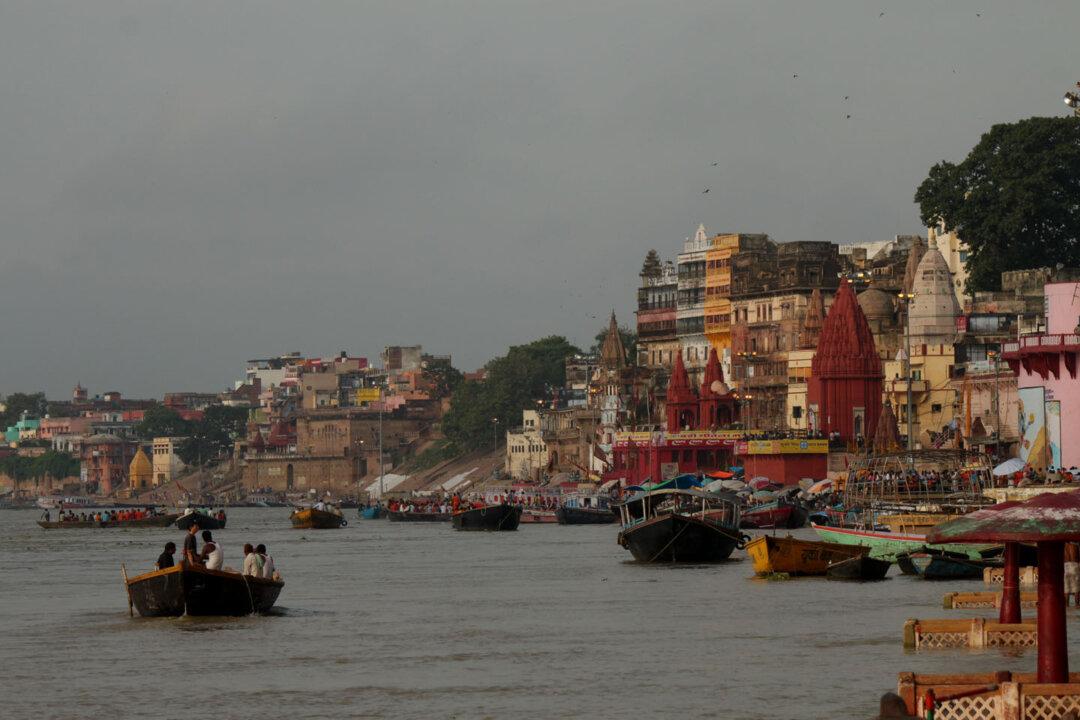VARANASI, India—India’s Supreme Court is becoming impatient with Prime Minister Narendra Modi, who made a campaign promise to clean up the river Ganges, also known as Ganga.
“You are showing no urgency to protect Ganga,” the court said on Wednesday, giving the government two weeks to come up with a plan.
Over the past three decades India has made many plans to cleanse its most revered river, none of which have panned out.
Hopes were high that Modi would change this as he is from Varanasi, a holy city for Hindus, on the bank of Ganges. The day he won the elections, he made a promise to clean the Ganges, saying “Now it is time to do my bit for Maa Ganga [Mother Ganges].”
Once in power Modi formed a separate ministry to clean the river under Uma Bharti, one of his most trusted leaders, who, incidentally, is a Hindu sanyassini (nun).
She responded to the Supreme Court’s complaint by saying the government sees cleaning the river as a high priority, and “no effort will be spared in fulfilling this task”.
Political Will
“The new Indian government has the vote, the money, but they would need a high level of will power and moral power to execute the plans,” said Rama Rauta.
Rauta is an Expert Member of the National Ganga River Basin Authority, an organization established by the Indian Government in 2009 to safeguard the Ganges basin.
She says it does not seem to make a difference who is in power, only a tiny fraction of the cleanup plans made in 1985 have been implemented. She says money has been flowing to cleanup efforts but she has no idea where that money has gone.
Bathing on the Ganges
On August 4, the first day of the month of Shravan in Hindu calendar, millions gathered on the banks of the Ganges to take a dip in the holy river and pay obeisance at the main temple.
The steps leading to the river smelled of human urine, decomposed flowers, and other waste, a sample of what can be found in the water.
The river’s pollution is so bad that over 60 percent of the population of Varanasi deal with water-borne diseases every year.
This is because untreated sewage and industrial runoff flows unchecked into the river daily. The Hindu belief that dying in the Ganges brings liberation has also made it a flowing cemetery.
“Ganga can never be cleaned if we leave this matter fully on government,” said Dr. Gopal Prasad Adhikari, a Sanskrit scholar who has lived in Varanasi for 38 years. He says the average person people must learn to respect and take care of the river if things are to change.
According to him, the major challenge before the government is to make people take responsiblity for the hygiene of the Ganges.





